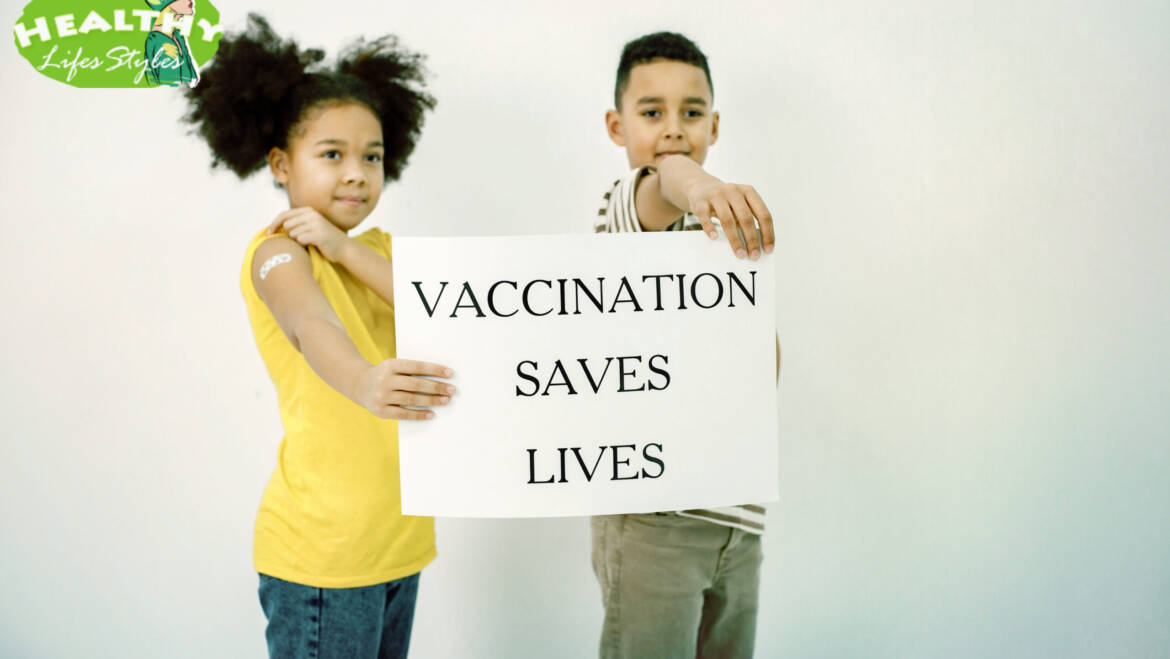The protection of children’s and communities’ health depends heavily on vaccinations. In this thorough overview, we’ll examine the multiple advantages of immunizations for kids while dispelling common myths and worries. We may make educated decisions on immunization by comprehending the significance of vaccinations in disease prevention, lowering mortality and morbidity, managing outbreaks, and attaining global effect. Explore the world of immunizations and learn how they help to ensure a healthier future.
Knowing about vaccinations
Immunizations, commonly referred to as vaccinations, are preventive procedures that assist the immune system in identifying and combating particular diseases. They function by delivering harmless infections or parts of pathogens into the body, triggering an immune response without actually making a person sick. This section will explain the idea of herd immunity, which safeguards people who cannot receive vaccinations by causing a sizable segment of the population to develop an immunity to a disease. We will also address frequent myths and worries about immunizations, dispelling rumors with factual information.
Health Promotion
The ability of immunizations to prevent infections in children is one of its main advantages. Measles, polio, and whooping cough have all been eradicated or greatly reduced in frequency because to vaccinations. In-depth discussion of the individual vaccines for these illnesses will be covered in this section, along with a discussion of how well they work to stop the spread of infectious germs. By examining how immunizations affect the prevention of disease, we can better appreciate the significance of preserving high immunization rates within communities.
Death and morbidity rates are lower
The impact of vaccinations on lowering child death rates and the total burden of disease is extraordinary. This section will go into the data and research proving the link between vaccination and lower morbidity. We underline the significance of early and comprehensive immunization schedules in boosting children’s health and wellbeing by highlighting the considerable decrease in diseases and consequences as a result of immunizations.
Preventing Epidemics
Immunizations are essential for preventing disease outbreaks and safeguarding the public’s health. The historical examples of disease outbreaks and the subsequent deployment of vaccination campaigns will be covered in this section. We emphasize the significance of individual and communal responsibility in sustaining high vaccination coverage by looking at the proactive strategy of immunizations in reducing outbreaks.
Immunity from the herd and defense for the weak
A key idea in vaccination is herd immunity. This section will describe how high vaccination rates safeguard vulnerable groups, such as young children, the elderly, and people with weakened immune systems. We underline the significance of vaccination in protecting the most vulnerable members of society by demonstrating the interdependence of communities and the shared duty in maintaining herd immunity.
Savings over the long term
In addition to improving individual health, vaccinations result in substantial long-term cost benefits for families and healthcare systems. The economic advantages of vaccinations in lowering healthcare costs will be covered in this section. We underscore the importance of investing in preventive measures that may ultimately save lives and resources by examining the cost-effectiveness of immunization programs.
Global Effects and Disease Eradication
Vaccinations have had a significant worldwide influence, eradicating or nearly eradicating illnesses like polio and smallpox. This section will look at these victories as well as current initiatives to eradicate other vaccine-preventable diseases globally. We highlight the value of international collaboration in attaining health equity and disease eradication by highlighting the cooperative character of global immunization efforts.
Safety of Vaccines
The safety of vaccines must be ensured at all costs. This section will address frequent worries and myths about the safety of vaccines. In order to allay worries and boost confidence in the safety and effectiveness of vaccinations, we try to accurately inform people about the stringent testing and monitoring procedures they go through.
Vaccinations are available.
The success of immunizations depends on equitable access to them. The significance of reducing access constraints and ensuring extensive immunization coverage will be covered in this section. We work for increased inclusivity in immunization programs by highlighting approaches to overcoming access issues as well as the function of healthcare systems and legislators.
In conclusion, immunizations have many positive effects on both the health of children and the general wellbeing of communities. Vaccines serve a crucial role in assuring a better future by avoiding diseases, lowering mortality and morbidity rates, controlling outbreaks, and having a global influence. Recognizing the enormous value vaccines serve in preserving their health, it is essential that parents and other caregivers give immunization for their children first priority. We can all work toward healthier communities and a better future by collaboratively making decisions based on truthful facts. Let’s harness the power of immunizations to create a better, disease-free future.


Add Comment